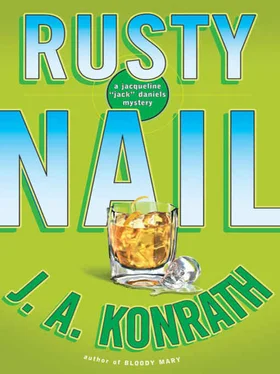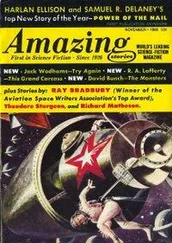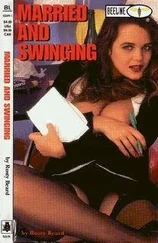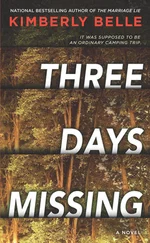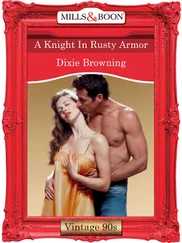Careful to avoid the blood, I left the kitchen and followed the blood spatters, through the living room, up to the window. Hanging on a jagged shard of glass were three red hairs.
Caleb Ellison, who lived with Charles Kork for ten years, had red hair.
The CSU arrived. Pictures were taken. Video was shot. Samples were acquired. I left after an hour, heading to St. Vernon to check on Herb. He hadn’t come out of surgery yet. I sat with Bernice, holding her hand, trying to get my mind around everything.
It didn’t make sense.
The note and the hunting knife looked to be matches, but other than that, this crime didn’t seem at all related to the deaths of Diane Kork and Francis Mulrooney. There were too many discrepancies. The MO was all wrong.
Diane and Francis were abductions. No evidence had been left. Their deaths had been videotaped. Their killer wore black leather gloves. Everything pointed to him having a blond beard.
But in this case, the killer was a redhead who wore latex gloves, tried to kill his victims in their homes without recording it on tape, and left a truckload of physical evidence.
Why so many differences? Was the killer escalating? Or getting sloppy? Or was this a hasty attempt, thrown together at the last minute?
By four a.m., Herb was out of surgery, and his doctor came to see us. I didn’t like the fact that he appeared grim.
“We repaired the damage to his lung and inserted a tube to reverse the pneumothorax – the collapsed lung – but while on the table your husband suffered a myocardial infarction.”
Bernice’s only reaction was to blink.
“He had a heart attack?” I asked.
“We were able to resuscitate, and he’s in Recovery now. We anticipated this might happen. A chest CT before surgery revealed large amounts of calcium deposits on his arterial walls. So after closing him up I ordered an MRA and found evidence of coronary artery disease. He’s going to need angioplasty at the least – I need to run some more tests. There’s enough plaque to qualify for bypass surgery.”
Bernice began to cry, and I didn’t feel so hot myself.
“I want to see my husband.”
The doctor nodded. “One visitor only. He’s still in critical condition.”
Bernice hugged me, and the doctor escorted her out of the waiting room. I sat for another hour, pestered the nurse to visit Herb, got turned down, and went home, worried sick.
SLEEPING WASN’T AN option, so I left for Indianapolis early, the rising sun in my face as I headed southeast. There was a little bite of winter lingering in the air, a frigid breeze that made a jacket necessary. I wore my three-quarter-length London Fog trenchcoat, black Levi’s, and a black and red blouse by Kathleen B that I picked up in a small boutique in Aurora. The blouse was made of material called poodle fabric, and had the thickness of a sweater without the bulk. For shoes, I went with Nikes – no woman likes to drive long distances in heels.
I did a lot of thinking during the trip. If I truly was happy being miserable, as I suspected, then I’d just attained a state of euphoria.
My father died when I was young. My mom raised me, but she’d worked full-time as a police officer, and from eleven years old on I spent a lot of time alone, locked in our little apartment. I loved Mom, and appreciated all she’d done for me, but I didn’t need a therapist to know I had abandonment issues. Control issues too. Chasing bad guys helped keep the issues at bay. It was easier than dragging them out into the sunlight and dealing with them.
But at times like these, when the world felt like it was falling apart around me, when it didn’t look like the bad guys would ever get caught, when I needed more than ever to be strong – I always seemed to come up short.
When I joined the police force out of college, Mom hugged me and told me how proud she was, and then begged me to quit. She was my role model. I wanted to be like her, and didn’t understand why she regretted me following in her footsteps.
Now I understood. It took twenty years, but I understood. I did a lot of good things, helped a lot of people. Saved lives. Caught criminals. Made the world a better place.
A better place for everyone but me.
I had a husband. I could have had a family, and pursued some other career that didn’t involve death.
Funny thing about regrets. I don’t lament what I’ve done, but rather, what I didn’t do.
And now, with my partner hurt, my job in trouble, my love life nonexistent, and my mother in a coma, I couldn’t help but wonder if I should have listened to Mom and not have become a cop.
Would I be happy?
I considered the melancholy I felt when I thought I was going to die in the fire. I’d faced death, and met it with apathy.
That spoke volumes.
I arrived at the Indiana Women’s Prison a few minutes before nine. From the outside it looked like an old schoolhouse, a two-story building made of reddish brown brick, with a circular driveway and well-tended green landscaping. The assistant superintendent met me inside, a thin reed of a woman named Patricia Pedersen. She had severe black eyebrows that looked like caterpillars and the barest hint of a mustache above thin lips. Her pantsuit matched the mustache.
“Lieutenant Daniels, welcome to our facility. We’ll need to check your weapon, of course.”
My.38 was locked away, and Ms. Pedersen had me sign in before leading me inside. I knew a little something about the prison. It was the first all-female penal institution in America, having opened in the 1870s. High-medium security, dorm living rather than individual cells.
“We’re currently over capacity, with 388 inmates. Most of the latest are juvenile offenders. We just received an eighth grader who beat her mother to death with a baseball bat. Tried as an adult and sent here. Thirteen years old.”
The hall we walked down didn’t have any doors – just concrete blocks painted gray and a white tile floor that met Ms. Pedersen’s square-heeled shoes with a horselike clip-clop .
“Tell me about Lorna.”
“Admitted twelve years ago. She cut off another woman’s breasts. Lots of trouble, for the first few years. Fighting. Attacking guards. Starting fires. She’s settled down some recently, since turning sixty. Still a strong woman, though. Don’t underestimate her.”
“Any visitors lately?”
“I don’t think so. I can check the records.”
“If you could.”
She led me through some heavy steel doors and into the first dormitory. It resembled a military barracks, beds alternating with metal lockers. All were empty.
“Breakfast just began in the mess hall. We’ll catch her as she’s coming out. Need a private room, or can you talk in the yard?”
“A room.”
“I can move some chairs into isolation, post a guard on the door for you.”
“If you could take her there first.”
“Of course. You can wait in my office.”
“Can I read her file?”
“I’ve already pulled it for you.”
Ms. Pedersen took me through more locked doors, another lonely hall, and into a small room with a cluttered desk. An American flag hung limply on a pole in the corner, and a signed picture of a former president adorned the wall. I sat in a wooden chair, the red vinyl cushion cracked and hard.
She brought me the Lorna Hunt Ellison file, and I gave it a quick go-through. Lorna had been born in Indiana, sixty-two years prior. She’d been arrested over a dozen times, mostly violent offenses, and previously served a two-year stint in Rockville Correctional Facility for setting fire to a liquor store.
That was the litmus test for blue-collar crime: liquor store burning.
Читать дальше
